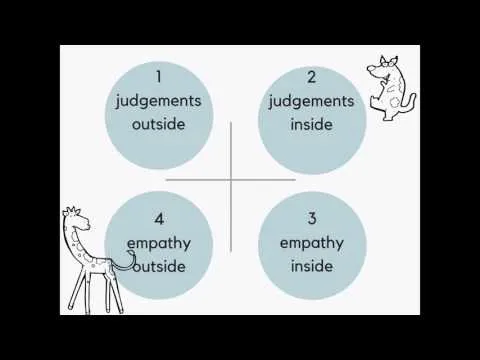Language is, without a doubt, one of the most important and profound developments in human history. It has allowed us to describe the world we live in and express ourselves to one another. Language lays the foundation for our belief systems and also our idiosyncrasies. Our view of the universe is also shaped by the words that we use to describe what we see and experience. Written language is especially important because it immortalizes information and makes it possible for humans to record an extremely detailed history.
In order to surpass the systemic violence we see in much of our world, we must expand the limits of our vocabulary. Anyone can contribute to the positive expansion of their culture’s vocabulary, and tear down the linguistic barriers set by those who keep us mentally enslaved. Advancing our communication skills is an essential step towards achieving world peace.
One man who has worked tirelessly on communication is traveler and psychologist Marshall Rosenberg. Rosenberg is responsible for developing a new way of speaking which he calls Non Violent Communication (NVC) or Compassionate Communication. This method of communication is simple and has had profound success all over the world, from the feuding tribes of the southern hemisphere to the broken homes of modern America. Marshall recognized that all human language is filled with traps that inevitably lead to conflict, these traps are trigger words which he referred to as “jackal language”.
Jackal language consists of words that imply guilt, humiliation, shame, blame, coercion, or threats. Marshall believes that this kind of language and interaction is not a natural process, but a byproduct of the “culture of domination” that he believes has consumed our species for at least eight thousand years. We agree with his assertion. To resolve conflicts, it is necessary for us to avoid using jackal language, and learn to be empathetic when working out our problems.
According to NVC, conflict arises between two or more people when someone in the equation has needs which aren’t being met. This is the root cause for humans acting out and the reason why some people are oftentimes unhappy with the actions of others. In most conflicts, these issues are never addressed. Instead of identifying everyone’s feelings and needs in order to work towards a solution, the two parties begin a battle of blaming, which neither side can ever truly win.
Nonviolent communication is a very easy method to explain, but can be difficult to master. One of the most difficult parts of the process to actually grasp is the very first step - observation. In times of conflict, many of us are very quick to confuse judgments with observations.
An observation would be “our project is due next week”. In this case you are only stating the facts of the situation, you are not making any judgments. A judgment relating to this observation would be “our project is due next week and you haven’t done a damn thing, I have done all of the work, you are lazy”.
This is an example of the kind of judgments that cause a lot of arguments and miscommunication. It is very common for conflicts to be filled with judgments and labels that only push the conversation into a more negative direction. Don’t get discouraged with yourself if you find it difficult to speak without passing judgments or using jackal language, as these are both things that are fundamentally woven into our language and seem natural to most people.
Once an observation is made, it’s time for the parties involved to express their feelings on the subject to establish a mutual understanding. For example, one could say, “our project is due next week, and I’m very worried about our grade, what can we do to make sure we pass?”
In situations of conflict, it is an unmet need that is causing discontent, so the objective of the conversation is to identify the needs which are causing the feelings. Once everyone’s needs are on the table it becomes very easy to see a possible solution in which everyone’s needs are met and the conflict can be resolved.
This was a very quick and basic introduction to nonviolent communication but there are many books written by Marshall Rosenberg that discuss his theories in greater detail.
There are also local NVC groups around the world where you can learn the techniques. Marshall Rosenberg is just one great mind in a sea of millions, and it is very possible for his method to be someday improved upon, or for an entirely different communication method to develop. In fact, it is probably necessary for each generation to constantly be working to improve our language, so it can be a tool of expression, rather than a tool of oppression.
This was a selction from my book with Derrick Broze "Finding Freedom in an Age of Confusion" which can be found on Amazon, or at the link in my bio below.
AUTHOR BIOGRAPHY:

My name is John Vibes and I am an author and researcher who organizes a number of large events including the Free Your Mind Conference. I write for numerous alternative media websites, including The Free Thought Project @tftproject and The Mind Unleashed. In addition to my first book, Alchemy of the Timeless Renaissance, I have also co-authored three books with Derrick Broze @dbroze : The Conscious Resistance: Reflections on Anarchy and Spirituality, Finding Freedom in an Age of Confusion and Manifesto of the Free Humans
I just won a 3-year-long battle with cancer, and will be working to help others through my experience, if you wish to contribute to my medical bills, consider subscribing to my podcast on Patreon.
Or donate via:
Bitcoin: 35ZJyqPZqJi7tTCKtMddtnKaGDBnhLEaez
Ethereum: 0xbda87e26ed90e260ed6c101f57a409ce3c90c116
DASH: XyE2YME982TXHcQo6HZYyWr37R1pnBC3iT

